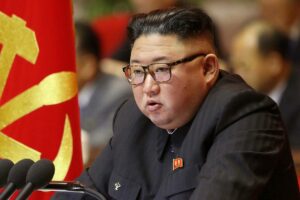In a recent turn of events, Western brands are grappling with an unforeseen backlash across West Asia, driven by widespread discontent over Israel’s military offensive in Gaza. From the bustling streets of Cairo to the quiet corners of Kuwait, iconic names like McDonald’s and Starbucks find themselves entangled in a growing consumer movement.
The silent protest unfolds
The story begins with deserted tables in McDonald’s and Starbucks outlets as consumers express their dissatisfaction through a silent protest. The trigger—an Israeli military offensive that has led to an unprecedented humanitarian crisis. The boycott, largely fuelled by social media campaigns, marks a shift towards local alternatives as consumers make their voices heard through their purchasing power.
This protest goes beyond symbolism; it’s a tangible manifestation of citizens aligning their choices with their values, creating a unique form of dissent where the consumer actively participates in geopolitical conversations.
Regional impact & escalation
As the boycott gains momentum, it’s not confined to Egypt and Jordan; signs of the movement are cropping up in other Arab nations, including Kuwait and Morocco. Pro-boycott residents actively encourage others to redirect their business away from Western brands. The impact extends beyond empty seats; it reverberates through the economic landscape, with some outlets reporting sales plunging by significant percentages.
This regional escalation reflects a groundswell of anger over the conflict and the perceived affiliations and financial ties of these Western brands. It’s a unique form of civic engagement where citizens, restricted by security measures, find alternative means to express their discontent.
Corporate response and economic ripples
In response to the boycott, targeted companies like McDonald’s expressed dismay and attempted to clarify their positions. The economic toll becomes evident as sales plummet, raising questions about the sustainability of these businesses in the region. The story reveals an uneven take-up of boycotts in various countries, reflecting the complexity of consumer sentiments and the nuanced nature of these geopolitical protests.
Beyond the corporate statements, the financial repercussions highlight the evolving dynamics between corporations and socially conscious consumers. It poses a broader question about the role of businesses in geopolitics and how global brands navigate a landscape where consumer choices can influence diplomatic narratives.
Bottomline
As Western brands grapple with the aftermath of this unexpected backlash, the story unfolds as a testament to the evolving relationship between consumers, corporations, and geopolitics. The silent protest in West Asia serves as a poignant reminder that in an interconnected world, consumer choices can reverberate far beyond the confines of a local fast-food outlet.
Source : Wio News















